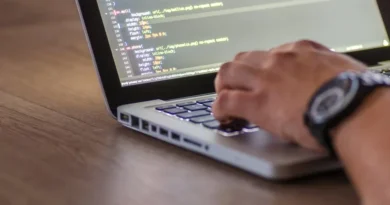VoIP Security: Best Practices for VoIP Phone Systems
Suppose you or your business are already using a VoIP phone system. In this case, you’re no doubt already aware that this type of comms network offers enhanced security, as compared to ‘traditional’ landline connections, as well as many other benefits.
However, no system is impermeable or completely safe from attack, and so taking the time to put some best practice policies in place when it comes to your comms is vital to staying safe and keeping your data and communications private.
Keep reading to find out the quick and easy steps to take to ensure that your VoIP connection remains as secure as possible.
Minimizing Nuisance Calls
Nuisance calls are not only an annoying waste of your time, but there’s a high chance that they’re being made by scammers who are out to get hold of your personal details or those of your business. With techniques becoming increasingly sophisticated, these scams are getting harder and harder to spot.
If you’re wondering how to find owner of VoIP number, if you’re receiving unwanted calls, then you have a few options. You could perform a reverse phone or IP address look-up or even get in touch with your VoIP provider to let them know the problem.
A better longer-term solution is to alter your VoIP settings to display caller ID so that you can see if it’s a number you recognize before answering the phone – this will also allow you to take the additional step of blocking a persistent nuisance caller if necessary.
Use a Strong Password and Two Stage Authentication
Setting a strong password for your VoIP connection is one of the quickest yet most effective ways to keep your information safe. Use a combination of letters, numbers, and special characters, and be sure not to include any whole words or names. Never use a password that could be easily guessed, such as one that incorporates your date of birth or that of your spouse, and avoid using the same (or similar) passwords for different accounts and online platforms.
Ensure, too, that you have two-factor authentication enabled on all of the devices using your VoIP connection; this means that, even if your username and password are compromised, your connection will stay secure as long as you remain in physical possession of your devices.
Use an Encrypted Connection
The majority of VoIP networks use encryption to keep data sent over the connection private and safe from hackers. However, it’s the work of seconds to check with a company that this encryption is in place before signing up for a package – and it could make a huge difference to the effectiveness of your online security.
Encryption means that, even in the event of a snooper gaining access to your network, they won’t be able to decipher any information or data that you’ve sent or received over your VoIP connection.
Review Call Logs Regularly
Another quick and easy step to take to keep your VoIP as safe and secure as possible is to regularly review your call logs. Look out for numbers that you don’t recognize, calls with durations much longer than you’d expect to see, and any other unusual activity that could suggest your connection has been compromised.
If you see anything suspicious, contact your VoIP provider immediately, and change the affected passwords.
Install Security Patches When Available
VoIP companies will regularly release security patches for users to download – these ensure that your devices and connections remain protected against newly emerging threats.
If you’re busy, it can be tempting to put off installing these patches straight away; doing so, however, is vital to keeping your data and details private. Most companies will send you a nudge when a patch is available but check their online site, too, regularly.
Ensure the Fire Wall is Enabled
Check that your router’s firewall is enabled. A firewall monitors incoming traffic and will block (or warn you about) anything that looks suspicious. Never connect your IP phone directly to the internet without using a router with an enabled firewall: doing so means that anyone with an internet connection could access your VoIP network’s interface.
Restrict User Permissions
This recommended piece of best practice is most relevant for those using VoIP at work. Simply changing the settings to make sure that only the members of staff who need it have administrator access to the nuts and bolts of your VoIP connection is a crucial way to ensure optimum levels of security.
Review the list of permissions regularly so that it stays current, and remove staff who have left the business immediately.
Educate All Users
Finally, once you have your best practice policy in place, make sure that all staff members are aware of it and how to implement it. Consider holding a short training session to educate your team on the importance of keeping your connection secure and the simple steps they need to take to make this happen.
For home users, make sure that everyone in the family understands the things they need to do – or not do – to maintain the highest levels of security.




